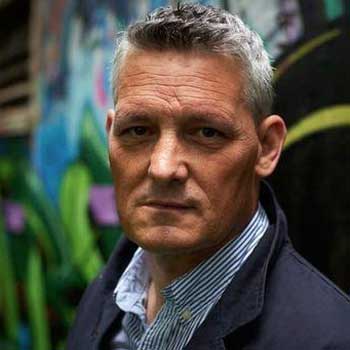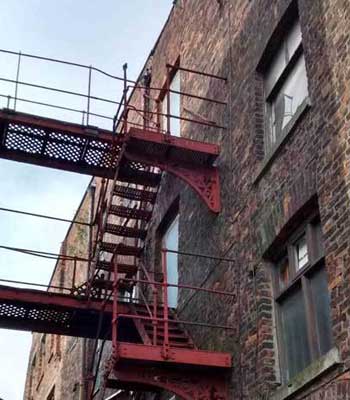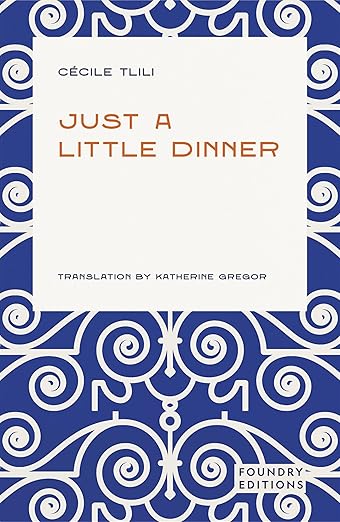England – NEIL WHITE – The Manchester of the Domino Killer
 Now I’d be nervous if I said I wasn’t nervous about meeting Neil White. He writes about killers for one…..he’s a prosecutor by day so would know how to cover his tracks…and he’s set his latest book in ‘the rough end’ of Manchester. Well, that’s why I’ve invited him to Booktrail Towers – better on your own patch so to speak. I’ve made a cake – (fruit cake with a file inside – in keeping with Neil’s crime fiction theme)
Now I’d be nervous if I said I wasn’t nervous about meeting Neil White. He writes about killers for one…..he’s a prosecutor by day so would know how to cover his tracks…and he’s set his latest book in ‘the rough end’ of Manchester. Well, that’s why I’ve invited him to Booktrail Towers – better on your own patch so to speak. I’ve made a cake – (fruit cake with a file inside – in keeping with Neil’s crime fiction theme)
Hello Sir (keeping it respectful). So, Tell us about the Domino Killer…
My first intention was to conclude in some way a major part of Sam and Joe’s story, the murder of their sister years before. Also, I was interested in the idea of murders where there isn’t one person killing a number of people but where it happens as a chain. Hence the reference to dominoes.
In the book, a man is found dead in a park, the reasons unclear, and the mystery deepens when it transpires that his fingerprints were found on a bloodied knife close to a corpse a few weeks earlier.
Your background as a lawyer must really help with writing the character of Joe in particular but can it be a hindrance?
You’re right, in that there is good and bad in there.
The helpful part is that my job gives me knowledge of the law that I can use, and also an insight into how the courts and criminals work. I find it frustrating when I see books written that include scenes that are just plain wrong. I don’t mind if a legal scenario is potentially feasible, even if unrealistic, but when something is out and out wrong it’s frustrating. The law is a complex beast, based on words and terminology, and it’s easy to make a mistake. What’s frustrating is that the plot could be as tense even if legally correct. Take Broadchurch, for example (which was shockingly bad, probably the most incorrect legal drama ever). There was much rightful criticism of it; for instance, with the witnesses sitting in court before they gave their evidence. Would it have been any less dramatic with the witnesses pacing outside, unsure of what was happening in the courtroom, not knowing whether they were walking into a trap? I don’t think so.
If a writer doesn’t know much about the law, think about a different angle. Write it from the perspective of a confused outsider, for instance. Research is important, but you’ll still get something wrong, because different rules apply to different crimes and procedures.
The downside is, of course, that I might focus too much on making it accurate rather than interesting. Being a criminal lawyer is about plenty of routine stuff, ploughing through paperwork, interspersed with moments of high drama. I have to remind myself to focus on the high drama, not the routine.
The conflict between the two brothers is what sets your books apart. What do you find the most challenging about walking the line between one justice and another?
Being pompous, isn’t justice about finding the truth, regardless of which side you work on?
It is correct to say that being a criminal defence lawyer is slightly different, because a “victory” isn’t the same as justice being served. Let’s make no bones about it, being a defence lawyer involves trying to ensure that rapists and murderers and child molesters evade justice. No defence lawyer would advise a rapist or murderer to admit an offence just because it would be the moral thing to do. They are advised to plead guilty only when the evidence is overwhelming, or at least where they don’t dispute the allegation and the evidence is strong enough to convict. To do otherwise would be professionally negligent.
I’m not a defence lawyer anymore, I’m a prosecutor, but my view is still that the system is exactly as it should be. Whoever brings the allegation should have to prove it and it should not be down to some watered down standard of being “probably” guilty. A person can only be found guilty if the jury is “sure” that they are guilty.
Putting this in a fiction context, however, I can’t see a book doing well where the lawyer gets a killer or rapist off just because he or she can, and they ride off into the sunset, pumping the air with their fists. The usual premise for justice in crime fiction is that the killer is caught or the wrongly accused is acquitted. Justice is usually served.
So justice between Sam and Joe means the same thing, finding the truth, because it is fiction.
Who would win in a fight – Joe or Sam?
Sam would win by using “Home Office approved techniques”, but we’d never know for sure, because Joe is a lawyer; he’d twist the truth and present it in a different light.
How important/significant was your choice of Manchester as your setting?What research did you to evoke the city and its people well?
That’s a really difficult question, because I don’t know if I chose Manchester or if Manchester chose me.
My first six books were set in small Lancashire towns, but for the Parker brothers I wanted somewhere bigger. I trained to be a defence lawyer in Manchester and practised there when qualified before moving to a defence firm in Lancashire, so it just seemed the obvious place.
As far as research goes, I used memories and then revisited. I wanted to present Manchester in a positive light so with each book I tried to select an interesting area. In my head, I had in mind the areas nearer the Pennines than in the city centre. To put it another way, more Myra Hindley than Moss Side. I wanted that old Manchester, of old BSA bikes and blackened terraces, the Manchester of Morrissey.
Like any research, the best thing to do is visit and just observe. Put down what you see.
At a crime fest dinner party which five other writers, living or dead, would you invite and why?
Harper Lee, just to find out more. Why did she stop at one (or at least why didn’t she insist on The Watchtower being released earlier)?
Charles Dickens. To find out more about Victorian England.
WP Kinsella. To see if he talks as pleasantly as he writes.
Stephen King. Do I need to provide a reason for that?
PD James. To find out how she was able to go on for so long.
Which fictional place would you like to visit and why?
Salem’s Lot. I used to love those descriptions of small Maine towns by Stephen King, where it seemed like the spirits of the night and the undead were just waiting for the onset of darkness.
Well, with that. Neil has managed to find the file in the cake. He takes it as a souvenir of his visit to Booktrail Towers and offers a ‘Get out of Jail Free’ card from Monopoly in return. Signed. Ah with a sense of humour like that, I’m going to be reading all of his books.
Susan Booktrailer
Booktrail Boarding Pass:
Twitter – @neilwhite1965
Facebook – facebook.com/neilwhitefanpage
Website – neilwhite.net





